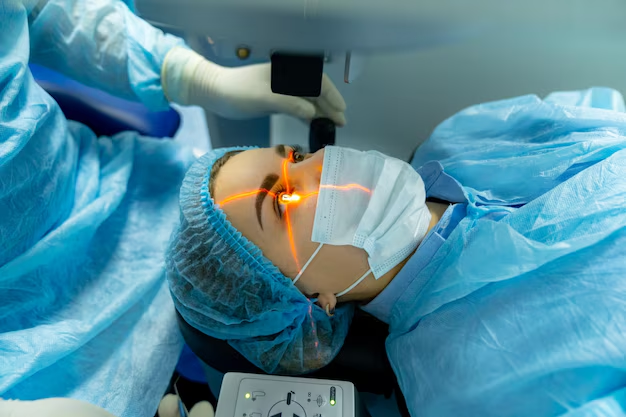How Soon Can You Expect Clear Vision After Cataract Surgery?
Cataract surgery is one of the most common and successful procedures in modern medicine, offering patients a new lease on life with clearer vision. Yet, the journey to perfect sight isn't instantaneous. While the procedure itself is quick and mostly painless, the healing process and timeline for restored vision can vary. So, how long after cataract surgery is vision blurry? Let’s explore what you can expect during recovery and what factors influence your healing process.
Understanding Cataract Surgery: The Basics
What Happens During the Procedure?
Cataract surgery involves removing the clouded lens of the eye and replacing it with a clear artificial lens. This is typically done on an outpatient basis, meaning you can go home the same day. The procedure usually takes about 10 to 15 minutes per eye, but prepare yourself for a longer stay at the clinic as pre-operative assessments and post-operative care will add up.
Why Is Vision Initially Blurry?
After the surgery, it’s entirely normal for your vision to be blurry or hazy. This is due to the eye requiring time to heal and adjust to the new intraocular lens (IOL). Swelling and inflammation in the eye are the body's natural immune responses to surgery and contribute to initial blurriness.
The Recovery Timeline: When Will Clarity Come?
The First 24 Hours
In the first day following your surgery, you may experience blurred vision alongside mild discomfort or itching. It’s crucial to follow post-operative instructions from your healthcare provider, which often include using prescribed eye drops to prevent infection and reduce inflammation.
The First Week
During the initial week, vision typically starts to improve rapidly. Many patients notice a significant clarity boost within a few days, although some degree of haziness might linger as your eye continues adjusting. Avoid activities that could strain or pressure your eye, such as heavy lifting or bending over.
Weeks 2 to 4
By the second week, most patients report much clearer vision, with colors appearing more vivid. It’s a common period for follow-up appointments to ensure the eye is healing correctly. During this phase, adherence to eye drops and protective eyewear remains important.
Full Recovery: One to Two Months
Complete stabilization of vision can take anywhere from one to two months, depending on individual healing and any additional eye conditions. By this stage, most patients enjoy noticeably improved vision compared to their pre-surgery state.
Factors Affecting Recovery
Pre-Existing Conditions
Conditions such as diabetic retinopathy or macular degeneration can impact recovery times and ultimate vision clarity. Discuss these with your surgeon to set realistic post-surgery expectations.
Lifestyle and Care
Following your surgeon's post-operative care guidance is crucial. Protective measures, like wearing sunglasses outside and avoiding rubbing your eyes, play a pivotal role. A balanced diet rich in vitamins and minerals can also support faster recovery.
Patient Age and Overall Health
Older patients or those with other health conditions may experience a slower healing process. Yet, age doesn’t preclude you from achieving successful results – it merely informs how recovery might proceed.
Enhancing Recovery: Practical Tips
Protect Your Eyes
- Wear protective eyewear: Whether it’s single-use plastic shields handed out at the clinic or wrap-around sunglasses, protect your eyes from accidental pokes or bright lights.
- Avoid water exposure: Prevent soap and water from getting into your eye until the incision is fully healed, minimizing infection risk.
Follow Medication Instructions
- Use prescribed eye drops: Anti-inflammatory and antibiotic eye drops are typically prescribed to manage swelling and prevent infection. Adhering to the dosage schedule is imperative.
Be Mindful of Activities
- Rest your eyes: Minimize activities like watching television or reading that can strain the eyes.
- Limit physical activity: Steering clear of strenuous exercise or lifting heavy objects can prevent unnecessary pressure on your healing eye.
When to Contact Your Doctor
While most recoveries are smooth, it's important to be aware of when to seek medical advice. Immediately contact your healthcare provider if you experience severe pain, persistent discomfort, sudden vision loss, or flashes of light in your vision.
Long-Term Effects and Adjustments
Adapting to New Vision
Post-surgery, many patients experience profound improvements, often achieving 20/20 vision or better. However, it’s common to need reading glasses due to age-related presbyopia not being corrected by cataract surgery.
Maintenance and Check-Ups
Regular eye exams post-recovery help ensure your vision remains optimal and can address any evolving needs or age-related changes in eye health.
The Emotional Journey: From Blurry Beginnings to Crystal-Clear Vision
Experiencing blurry vision post-surgery can be disconcerting, especially amidst expectations of instant clarity. It’s essential to trust the process and be patient with your body's natural healing. As weeks unfold, the difference in color perception and sharpness can feel nothing short of miraculous, ushering in added day-to-day convenience and renewed enjoyment of visual experiences.
This journey to clarity encompasses both physical adjustments and emotional resilience. Celebrating each visual milestone — from reading a favorite book without glasses to easily navigating familiar faces in a crowd — underscores the profound potential of modern cataract surgery.
Quick Recovery Tips from Cataract Surgery 📋
🕶️ Protect with Headgear: Use sunglasses outdoors and protective shields indoors.
💧 Adhere to Eye Drops: Follow the regimen for anti-inflammatory and antibiotic drops.
💤 Rest and Relax: Limit screen time and strenuous activities to support healing.
📞 Stay Alert: Contact your doctor if you experience unusual symptoms or pain.
🗓️ Attend Follow-Ups: Regular check-ins ensure successful recovery and address complications.
Through patience and careful care, the path to restored, sharper sight can be a transformative chapter in personal wellness.

Related Articles
- Are Cataracts Curable
- Are Cataracts Genetic
- Are Cataracts Hereditary
- Are Cataracts Nuclear Sclerosis
- Are Cataracts Painful
- Are Ivizia Eye Drops Okay After Cataract Surgery
- Are You Awake During Cataract Surgery
- Are You Awake For Cataract Surgery
- Are You Put To Sleep For Cataract Surgery
- Are You Sedated For Cataract Surgery
